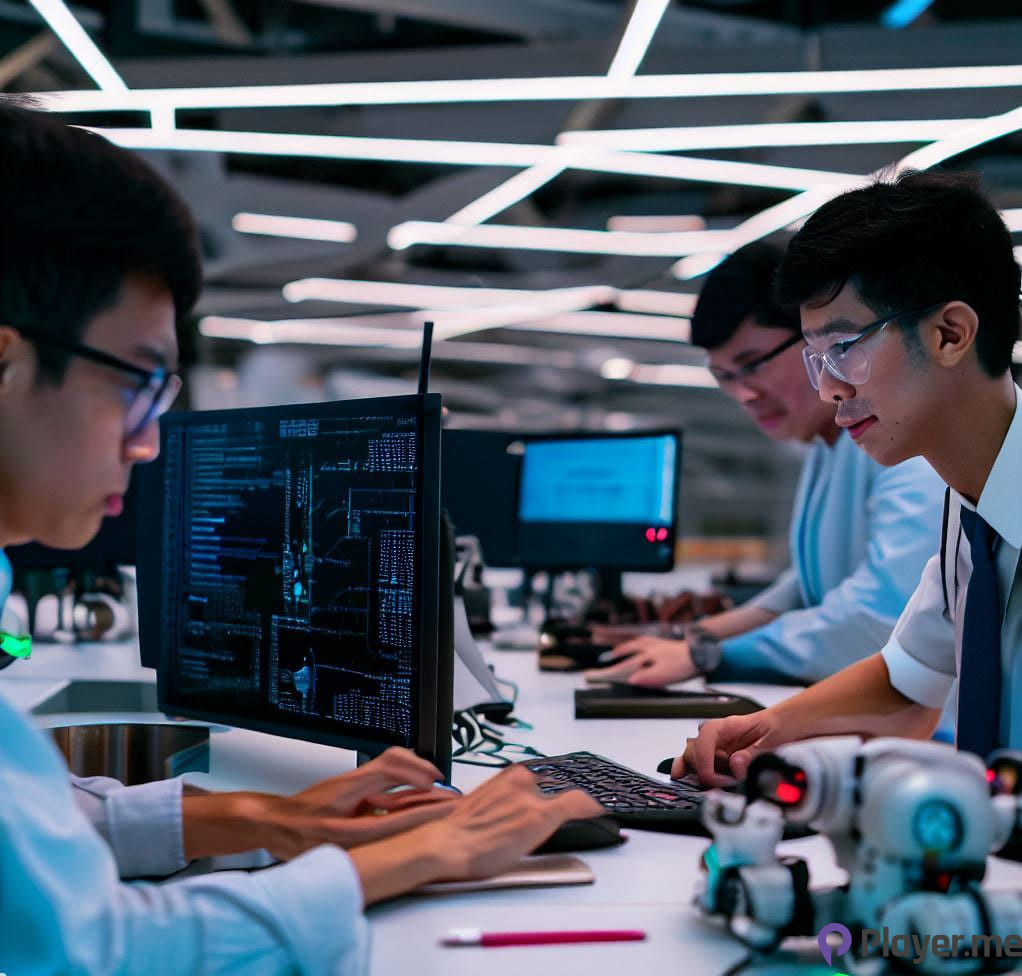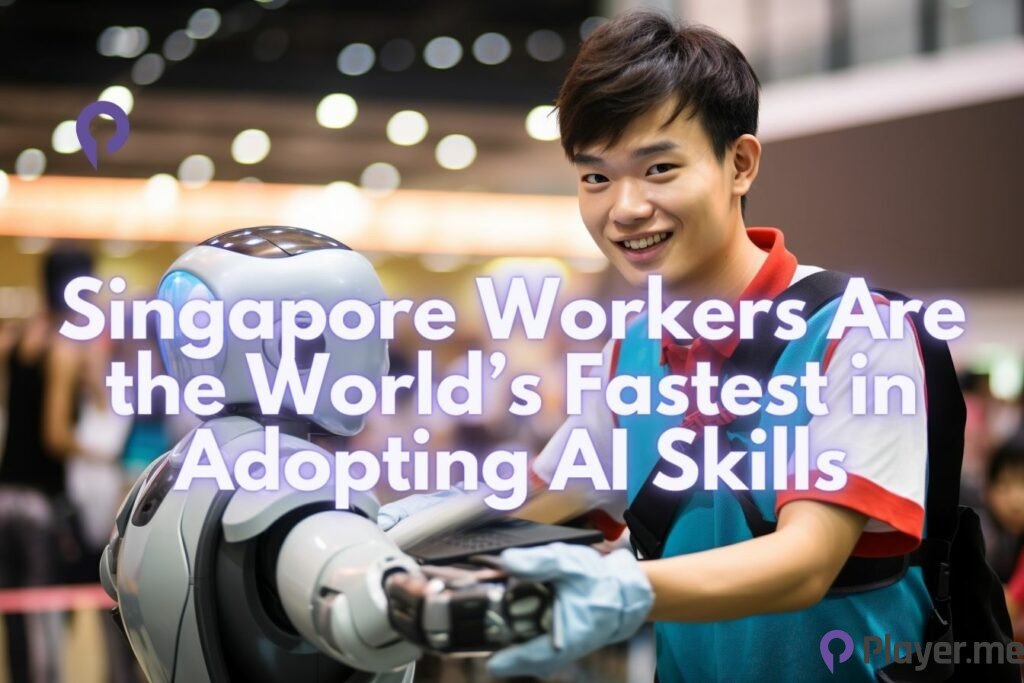LinkedIn’s recently released Future of Work report sheds light on the rapid adoption of Artificial Intelligence (AI) skills by workers around the world. Among the countries mentioned, Singapore stands out with the highest diffusion rate of AI skills, showcasing an impressive growth of 20 times compared to January 2016. This surge in AI skill adoption can be attributed to many factors, such as the nation’s robust digital infrastructure, a thriving venture capital system, and an intellectual property protection framework.
Also Read: AI Is Not a One-Time Bomb, but a Slow Burn of Devastation That Is Consuming Jobs and Culture
Singapore: The Epicentre of AI Skills Adoption
Singapore has emerged as the world’s frontrunner in the adoption of AI skills, as declared by LinkedIn’s Future of Work report. Drawing on data from 25 countries, the report reveals that the diffusion rate of AI skills among Singaporean individuals has grown 20 times since January 2016. This has surpassed the global average by eight times, underscoring Singapore’s rapid embrace of AI technologies.
Pooja Chhabria, an expert in careers and the Asia-Pacific head of editorial at LinkedIn, attributes Singapore’s AI leadership to several critical factors. The country’s robust digital infrastructure, coupled with a strong framework for safeguarding intellectual property, creates an environment for AI innovation.
Additionally, a thriving ecosystem of venture capital firms and angel investors provides the necessary capital for startups and businesses to drive AI development and adoption. All of these factors have come together to transform Singapore into a fertile ground for AI disruption.
Also Read: AI Companies in the U.S. Embrace Safeguards: A New Agreement

The Emergence of Generative AI Skills
In 2022, LinkedIn identified the top five fastest-growing AI-related skills added to member profiles, all pointing towards the rise of generative AI. These skills include question-answering, which has experienced a growth rate of 332%, along with classification and recommender systems.
The emergence of ChatGPT and the interest it generated in generative AI technologies prompted industry giants like Google and Microsoft to integrate AI across their operations. LinkedIn, which is a Microsoft-owned platform, introduced features that enable members to create AI-generated recruiter messages, user profiles, and job descriptions.
Balancing Generative AI’s Potential with Concerns
The aforementioned report also emphasises that while AI technologies offer significant potential, human judgement, ethical considerations, and creativity will always play a crucial role. It is clear that the partnership between human expertise and AI capabilities will shape the landscape of work and innovation.
The potential of generative AI to create text, images, and other content in response to human input has sparked concerns worldwide about job displacement. A Goldman Sachs report highlighted the possibility of 300 million jobs worldwide being affected by automation and AI.
In the context of LinkedIn’s report, 45% of the teachers’ skills are deemed potentially augmentable by generative AI. This offers an opportunity to alleviate workloads and allow professionals to focus on crucial aspects of their roles. However, it’s essential to note that generative AI complements human skills rather than fully replacing them.
Also Read: 5 Limits of Artificial Intelligence: Revealing the Cracks in AI’s Armour in 2023

Singapore and Its Foray Into AI
Singapore has established itself as a prominent player in technology governance and has witnessed swift technological advancements within Southeast Asia. The nation is actively pursuing its aspiration to solidify its global position as a hub for AI. The nation’s approach encompasses strong government support for AI research and development.
The success of Singapore’s efforts is evident on multiple fronts. It pioneered the launch of a national AI strategy in Southeast Asia and has allocated government-supported AI R&D spending that is 8 times greater as a percentage compared to similar U.S. spending. Singapore’s thriving startup environment, supported by foreign investments and international collaborations, has led to its recognition as one of the world’s most developed startup ecosystems.
However, there are certain challenges that Singapore must address before it further progresses in AI. With a significant gap between the number of graduates and the expected demand, addressing this deficit is crucial. To tackle this, the country has initiated apprenticeship programmes to fortify its youth tech pipeline. It has also sought out international tech partnerships to mitigate the shortfall.
The Changing Landscape of Jobs and Skills
The impact of AI on jobs and skills is slowly being felt. LinkedIn’s analysis of common occupations on the platform reveals that certain skills are more susceptible to augmentation by generative AI. For instance, software engineers find that 96% of their skills can be performed by AI. Additionally, customer service representatives see 76% of their skills in the same category.
This shift necessitates a renewed focus on people skills such as creative thinking, communication, leadership, and ethical decision-making. These skills are becoming increasingly vital in a landscape where AI plays an integral role.
The Role of Soft Skills in an AI-Driven World
As AI automation becomes more prevalent, the significance of soft skills grows. LinkedIn highlights that in the U.S., the most rapidly growing in-demand skills include flexibility, professional ethics, self-management, and social perceptiveness. Microsoft’s Work Trend Index report further emphasises the importance of analytical judgement, flexibility, and emotional intelligence.
While AI assists in generating content, the human element remains paramount. Colette Stallbaumer, the general manager of Microsoft 365 and the future of work, underscores the role of human judgement and agency in leveraging AI effectively.
Conclusion
LinkedIn’s Future of Work report paints a picture of Singapore’s remarkable lead in adopting AI skills, reflecting the nation’s favourable environment for innovation. The rise of generative AI skills prompts a discussion about the evolving nature of jobs and the importance of soft skills.
Frequently Asked Questions
What Is LinkedIn’s Future of Work?
LinkedIn’s Future of Work is an assemblage of research, insights, and prognostications concerning the transformative evolution of work. The creators of LinkedIn’s Future of Work are experts and leaders from different business units within LinkedIn.
What Are Some of Singapore’s Best AI Projects?
Some of the best AI projects are the Healthcare Programme for chronic disease prediction, the Education Programme for personalised learning, and the Border Security Programme for streamlined operations.
What Is Artificial Emotional Intelligence?
Artificial emotional intelligence refers to the ability of computers to recognise and respond to emotions in others. They do this by evaluating facial expressions, keyboard force, tone of voice gestures, and other data.
Author Profile
Latest entries
 GAMING2024.06.12Top 4 Female Tekken 8 Fighters to Obliterate Your Opponents in Style!
GAMING2024.06.12Top 4 Female Tekken 8 Fighters to Obliterate Your Opponents in Style! NEWS2024.03.18Elon Musk’s SpaceX Ventures into National Security to Empower Spy Satellite Network for U.S.
NEWS2024.03.18Elon Musk’s SpaceX Ventures into National Security to Empower Spy Satellite Network for U.S. GAMING2024.03.17PS Plus: 7 New Games for March and Beyond
GAMING2024.03.17PS Plus: 7 New Games for March and Beyond GAMING2024.03.17Last Epoch Necromancer Builds: All You Need To Know About It
GAMING2024.03.17Last Epoch Necromancer Builds: All You Need To Know About It





